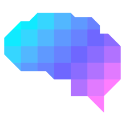- 📖 Geeky Medics OSCE Book
- ⚡ Geeky Medics Bundles
- ✨ 1300+ OSCE Stations
- ✅ OSCE Checklist PDF Booklet
- 🧠 UKMLA AKT Question Bank
- 💊 PSA Question Bank
- 💉 Clinical Skills App
- 🗂️ Flashcard Collections | OSCE, Medicine, Surgery, Anatomy
- 💬 SCA Cases for MRCGP
To be the first to know about our latest videos subscribe to our YouTube channel 🙌
Introduction
A 68-year-old man attends the emergency department following an episode of facial weakness. Work through the case to reach a diagnosis.
UK Medical Licensing Assessment (UKMLA)
This clinical case maps to the following UKMLA presentations:
- Facial weakness
History
Presenting complaint
“It’s settled down now but I had this really weird episode earlier where my face went all weak and numb”
History of presenting complaint
How long ago did this happen?
“About 1 hour ago”
What were you doing at the time?
“I was shopping with my daughter”
Can you describe in your own words what you felt
“My face felt weak and numb and overall I felt uneasy”
Did anyone else notice your symptoms?
“My daughter noticed I was slurring my words”
Did you lose consciousness?
”No”
Have your symptoms changed since they first began?
“It fully resolved 20mins ago”
Has anything like this ever happened before?
“I had a similar episode 2 years ago. It also resolved on its own with no lasting effects”
Did you have any other symptoms at that time?
“Palpitations in my chest and lightheadedness”
Other parts of the history
Did you have any weakness or clumsiness in your arms or legs?
“No”
Did you have any sensory disturbances or abnormal sensations?
”No”
Did you have any visual disturbances or loss of vision?
”No”
Did you have a headache?
”No”
Did you have any nausea or vomiting?
”No”
Did you have any dizziness or lightheadedness?
”I felt light-headed”
Did you have difficulty with walking or balance?
”No”
Do you have any medical conditions?
“Type 2 diabetes, high blood pressure, high cholesterol, anxiety and an underactive thyroid”
Do any illnesses run in the family?
“My dad died from a heart attack in his late 60s. And a lot of us have problems with our blood pressure and cholesterol.”
Do you smoke?
“Yes”
How much do you smoke?
“I smoke a pack every day”
How often do you smoke?
“I’ve smoked for 25 years”
What is your diet like?
“Most of my meals are takeaways and I often snack on sugary foods which I know I shouldn’t with my diabetes”
Do you exercise?
“I try to go for a 10 minute walk once a week”
Clinical examination
FAST assessment:
- Facial droop: Assess for asymmetric facial weakness by asking the patient to smile and lift eyebrows (forehead sparing lesion)
- Arms: Assess for pronator drift
- Speech: Assess for speech disturbances (expressive dysphasia, slurred speech)
- Time: Define the time course of the symptoms
- Basic observations
- Cardiovascular examination
- Cranial nerve examination
- Upper and lower limb neurological examination
Examination findings
- HR 90, RR 16, BP 164/94, Oxygen saturation 96% on air, Temperature 36.7oC
- Pulse is irregular
- Heart sounds normal
- No carotid bruits on neck auscultation
- All 12 cranial nerves intact
- No facial weakness
- No visual field loss
- Normal tone, reflexes, and coordination through peripheral neurological examination
- Strength 5/5 bilaterally
Investigations
- Blood glucose: 7.4 mmol/L
- ECG: rhythm is irregularly irregular, no discernable p waves
Diagnosis
- Transient ischaemic attack (TIA) or stroke
- Hypoglycaemic episode
- Migraine with aura
- Space occupying lesions
- Seizure
- Vertigo
- Bell’s palsy
Management
- Smoking cessation
- Management of underlying conditions (diabetes, hypertension, hyperlipidemia)
- Increase level of physical activity (improves blood pressure and glucose control)
- Dietary modification (low salt, low fat)
- Reduce alcohol consumption
There are several anticoagulants available. The following could be suitable, depending on the patient and local guidelines: warfarin, apixaban, edoxaban, dabigatran, and rivaroxaban.
Editor
Dr Jess Speller
References
- Stroke UK. Stroke statistics. Published in 2022. Available from: [LINK]
- NHS. Stroke. Published in 2022. Available from: [LINK]
- NICE. Stroke and transient ischaemic attack in over 16s: diagnosis and initial management. Published in 2019. Available from: [LINK]
- Royal College of Physicians. Stroke Guidelines. Published in 2016. Available from: [LINK]




